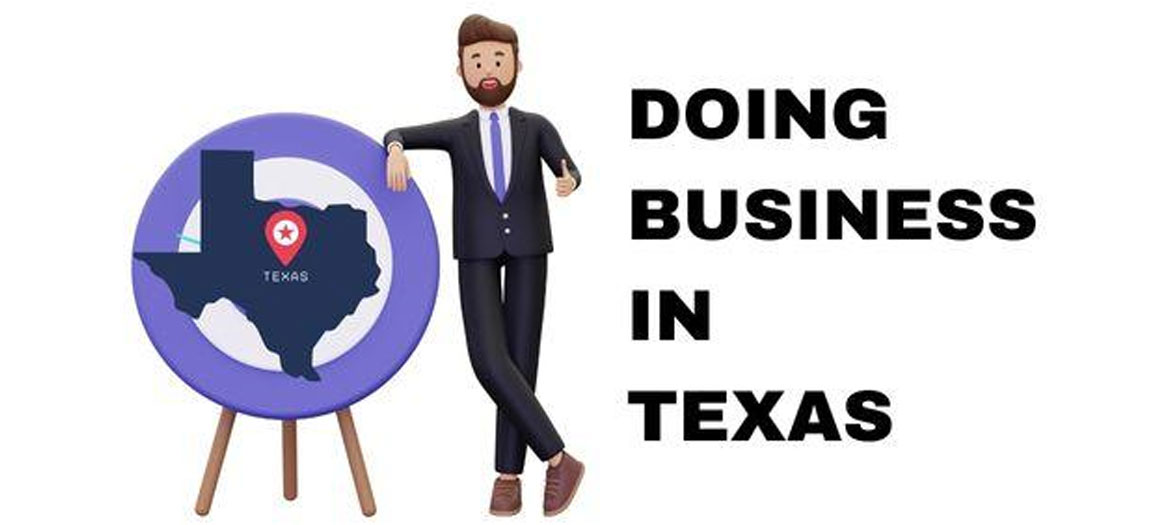Home / Functional Web Design / Business Development / The Texas Governor Issued 7 Useful Guidelines On Starting A Business
- Texas Governor Greg Abbott says the state has become the leading Fortune 500 Companies state, thanks to its no corporate tax environment, global market access, and sound regulatory environment.
- The state with the second highest GDP provides the ideal setting for starting a new business.
- Besides offering a high quality of life, Texas has some excellent universities ensuring industries have access to the right talent.
- Starting a business in Texas requires just seven basic steps based on the guidelines provided by the Texas Governor.

2022 Has been a good year. Let’s not forget how well Texas ended 2021, when during the fourth, the state had the most significant gross domestic product (GDP) increase of all U.S. states at 10.1% and continues to rank second after California. Texas is the ninth largest economy globally, with $1.985 trillion in GDP. Despite having long-standing ties with the energy sector, the Texan economy’s backbone relies on several sectors, including retail trade, leisure and hospitality, professional services, and health care. These represent the most income and jobs.
No. 1 State in Fortune 500 Companies
The 68th Fortune 500 annual list of America’s largest corporations published earlier this year showed that Texas is now home to the most, with 53 Fortune 500 companies headquartered there. It wasn’t long after the announcement that the Lone Star State gained another company when Caterpillar announced that it was moving its global headquarters to Irving, Texas, from Illinois.

Therefore, from June 2022, Texas numbers 54 Fortune 500 companies, New York has 51, and California comes third with 50. Meanwhile, Houston is the top Texan municipality with 21, while Dallas follows with 11. Fortune 500 companies contribute two-thirds of the nation’s GDP with an income of $16.1 trillion in 2021 and are present in 232 cities across 37 states.
Gov. Greg Abbot called Texas the nation’s economic engine and attributed its success to several factors that make the state attractive to businesses wanting to relocate or expand there. Furthermore, these same essential factors also encourage the formation of new businesses. These include a business-friendly environment, the absence of corporate and personal income taxes, a highly skilled and diverse workforce, the state’s access to global markets, and a rational regulatory climate.
Vibrant Funding Scene
Moreover, in an area where Texas tended to lag, venture investments have recently picked up considerably in the state. Texas-based late-stage funding reached a record-breaking $8.4 billion in 2021 for the state, but figures from Q1 show that this could be another good year.
Despite a significant portion of these funds, about 58%, going to tech companies in Austin, companies in other areas, including Houston and Dallas, are also benefiting from funding. For example, companies receiving venture capital include e-commerce software providers, telehealth, cybersecurity providers, developers of products made from plastic waste, a 3-D printed home developer, etc. These examples demonstrate that startup capital goes to numerous startups offering varying services and products.
Guidelines on Starting a Business in Texas
Texas has a leading business climate and has earned its reputation as the best state to start a business. Governor Greg Abbott issued seven useful guidelines to help make the process even easier.

- Start with a Business Plan
Creating a business plan provides your startup with a road map to guide your entrepreneurial path. In the business plan, you must outline your product’s or service’s primary purpose and what makes it attractive to your ideal customer. Also, include your intended business structure, how you plan to finance it, and its competitive advantage to the business plan. - Decide on Your Business Location
Your business location will depend on the industry and your type of business. Besides the importance of zoning ordinances for your industry, you also should consider access to the right workforce, supply chain, and markets. - Financing Your Business
There are several ways to fund a new business, including with your savings or by raising money from friends and family. However, some firms require extensive funding, so you must approach a bank for a micro-loan or personal loan. You could also seek a federal loan through the SBA and get valuable guidelines for financing from them.Nowadays, seeking crowdfunding and angel or venture capital in Texas is easier than ever. Finally, Community Development Financial Institutions (CDFIs) also provide micro-loans for new business owners. - Choosing Your Business Structure and Registering The Company
The proper business structure always depends on you and the type of business you are starting. Suppose you opt for one of the more straightforward business structures (sole proprietorship or partnership), then register and file the business name (Doing Business As) with your local county clerk’s office.However, for a more formal business structure that provides personal liability protection, like an LLC or corporation, you will find the details about the best business structure on the Secretary of State’s Office website and continue with the registration.Suggested Reading: See TRUiC’s guide on filing for an LLC in Texas and get through the process of naming your startup, choosing a registered agent, filing the certificate of formation, creating an operating agreement, and getting an Employer Identification Number seamlessly.Recommended Video: - Prepare for Your Business Tax Responsibilities
Determine your business’s potential tax responsibilities according to federal, state, and local tax obligations. You file for federal tax obligations with the Internal Revenue Service (IRS) and the Texas Comptroller of Public Accounts (CPA) for state taxes. In addition, businesses selling online can get tax information from Marketplace Seller. Finally, each county has an appraisal district or tax assessor-collector for local and property tax queries. - Getting Your Business Licenses and Permits
There are no general business licenses in Texas. Still, you must determine the necessary licenses, permits, certifications, registrations, or authorizations for specific business activities at the federal, state, and local levels. Information is available from the Texas Business Licenses & Permits Guide and the Texas Economic Development & Tourism’s Business Permit Office. - Business Employer Resources
Any business planning to employ staff must meet federal and state employer requirements. State requirements are available on the Texas Workforce Commission’s webpage.
Last Word
Texas is a booming state that continues to present a robust business environment for established companies and startups. According to the Governor’s guidelines, starting a business in the state requires just seven basic steps. By following them you can have your business started faster than you thought possible. Once you’ve set up your business, it’s time to build a professional website. If you need help with that, we’d be glad to help you out!


